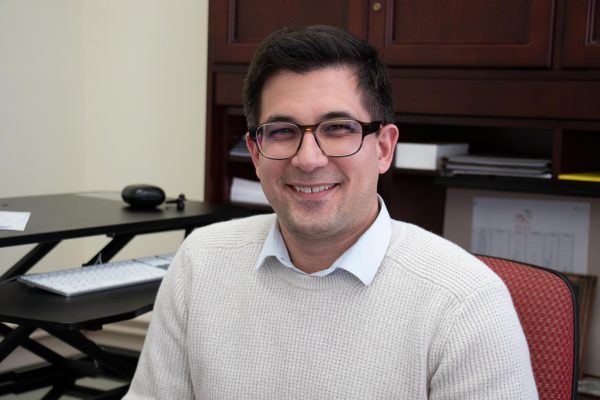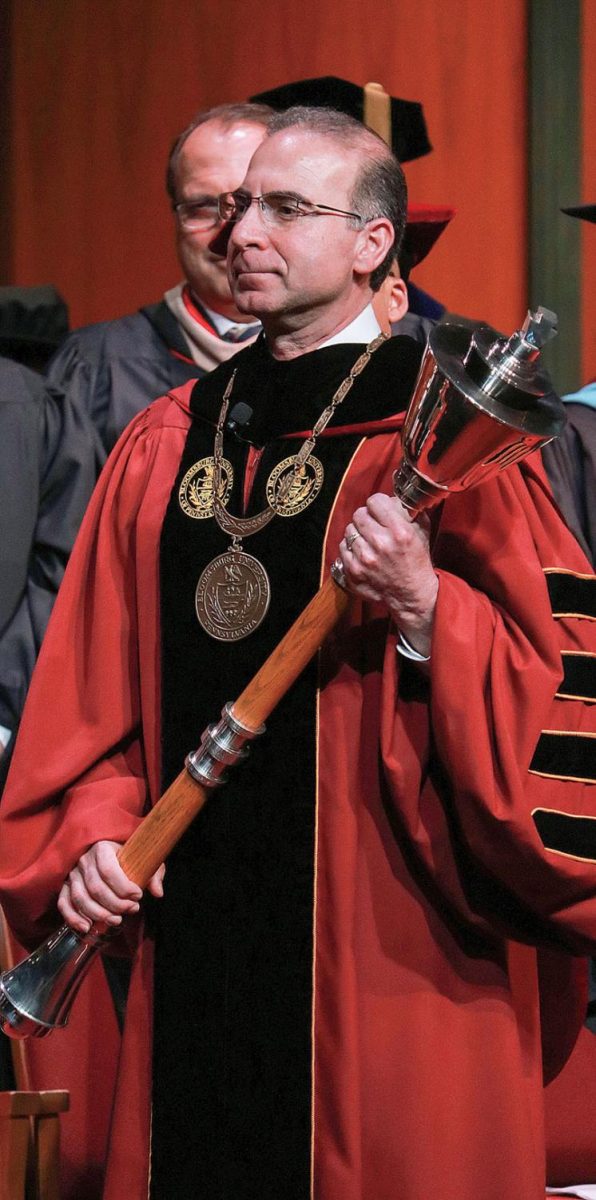
Photo by Cameron Beck.
What happened:
Governor Josh Shapiro’s 2024-25 budget address included a renewed vigor to invest in Pennsylvania’s State System of Higher Education universities. He proposed a 15% increase in funding for schools like Commonwealth University and a plan to create a new governance system that would unite state universities and community colleges.
Why it matters:
Pennsylvania State System of Higher Education (PASSHE) universities requested a six-and-a-half percent increase in state funding, a number that would keep tuition at CU frozen. The governor’s proposed number would allow for the potential for more growth within the higher-ed system, beyond PASSHE’s simple goal of holding tuition costs at a steady rate. PASSHE representatives and presidents believe this plan would open the door to creating more opportunities for PA institutions, a high priority as the state ranks 48th for affordability and 49th for state investment in higher education, according to a press release sent out by Shapiro’s office on Jan. 26.
Background:
Commonwealth University is funded in three ways; tuition, state appropriation and fees. 70% of CU’s current funding is from tuition and fees, according to Executive Director of External and Government Relations at CU, Dan Knorr. The more state investment in higher education, the less stress put on students financially.
Shapiro’s address outlined a “new blueprint for higher education” focusing on three key points. Under this blueprint, a new governance system will be created uniting Pennsylvania’s State System of Higher Education (PASSHE) universities and the 15 community colleges in PA. This new system will then give way to the second critical point, increasing access and affordability. Shapiro proposed a plan that would put Pennsylvanians making up to the median income in a position to pay no more than $1,000 in tuition and fees per semester. The last part of the plan focuses on increasing transparency by establishing a “performance-based funding formula” that will reward participating universities for reaching specific goals/outcomes.
The creation of this system and overall resurrected investment can be quantified by a proposed $975 million funding, a 15 percent increase from last year.
This total leaves some involved in higher education questioning what results really can come from it.
“… [A] 15% increase is a significant increase from years past…. Saying that, it is still not enough. Pennsylvania is near the bottom of all 50 states in relation to funding for higher education. This will move us up some, but we will still be in the bottom half of all states,” said Dr. Eric Hawrelak, a Commonwealth University professor and president of the Bloomsburg chapter of the Association of Pennsylvania State College and University Faculties (APSCUF).
This point is not lost on Commonwealth University or other PASSHE schools. PASSHE universities requested a six-and-a-half increase in state funding. The proposed increase would be enough to keep tuition rates frozen for the next year, reinforcing PASSHE’s commitment to affordability and accessibility.
“If it was something closer to the governor’s 15 percent, that could be really impactful for us and for our students,” said Knorr.
Currently, 70% of funding for CU is from tuition and fees, according to Knorr. The more state investment, the less burden put on students and families financially.
Presidents and representatives of PASSHE met the governor’s proposal with enthusiasm and an eagerness to start the beginning stages of this tedious journey.
“Access and affordability are two of the most significant barriers students face today. Governor Shapiro’s proposal presents an opportunity to address these critical issues while continuing the work of building a strong future for higher education and, most importantly, our students,” said Commonwealth University President, Dr. Bashar Hanna.
PASSHE Chancellor Dan Greenstein offered similar sentiments in his statement following the address.
“Together we can create a new, larger system with better collaboration that gives students more pathways to a degree or credential, rapidly adjust to the changing knowledge and skills employers want, and provides the lowest-cost option for students throughout their lifetime,” said Greenstein.
Republicans in Harrisburg met the governor’s eager plans with skepticism and anger.
“After listening to the governor’s budget address, it is evident that he, along with his cohort of progressive Democrats, are advancing an extremist, left-wing agenda that harms Pennsylvanians, resulting in increased taxes, fewer resources for rural communities, and blatant violations of our state and federal constitutions,” said Rep. Robert Leadbeter, the representative for Columbia County, in a press statement.
When asked to further clarify his comment regarding the “blatant violations” of the state and federal constitutions, Leadbeter did not respond.
Leadbeter wasn’t alone in his distaste for the budget address. Senate Education Committee chair Dave Argall expressed his disagreement with the proposal in a statement.
“This budget proposal is very similar to Governor Wolf’s unsuccessful budget plans. We heard a long wish list of what our governor would like to spend, without a detailed explanation of how to pay for it. We need to be realistic. We cannot follow California and New York down the path of reckless spending. Their choice, now that they have spent down their reserves, is to slash important programs or dramatically increase taxes. We don’t want to make the same mistake here in Pennsylvania,” said Argall.
As more information is released regarding the plans and future of PASSHE universities and their respective relations with the PA legislature, CU has promised to keep students fully in the loop.
“We recognize that our university has just undergone a lot of change over the past three years…. We have an extra sensitivity for overcommunicating anything we know about any change at the state level, just given how much change we’ve navigated together to create Commonwealth University,” said Knorr.
















